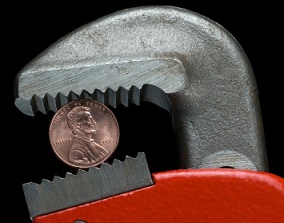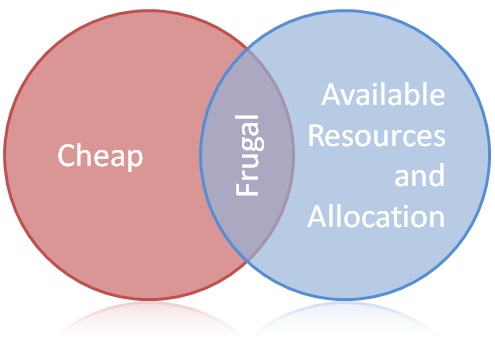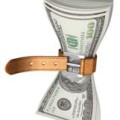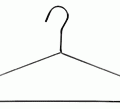What is the difference between being frugal and being cheap? This is a topic that comes up quite frequently on Frugal section of reddit. After reading through one of the most recent posts that broached this subject, I thought I would offer some of the main arguments there and give some of my thoughts on the matter.
Join me as we explore the topic!
Have You Ever Been Accused of Being Cheap?
By a show of hands, who here has ever been accused of being cheap? If you’re reading this post, chances are this has probably happened to you a number of times. For me, I have friends and family point out all the time that I’m too cheap for my own good.
In our current society, we normally think of “being cheap” as an undesirable characteristic. On the other hand, “being frugal” has a positive connotation to it. Some people consider cheap and frugal as synonyms, but I hope to convince you here that these can be two completely different types of behavior. But, they can also be one in the same! Alright, now that you are thoroughly confused, let’s ask the question: can being cheap ever be a good thing?
Can” Being Cheap” Ever Be Good?
Short answer: YES!!
Long answer: the remainder of the post will tell you why I believe the answer is yes. The key to understanding the argument is that being frugal is an extension of being cheap and sometimes they can overlap.
Dictionary Definitions: The Difference Between Being Frugal and Cheap
Definitions found from dictionary.com draw a distinct difference between the two words:
Cheap – Stingy; miserly.
Frugal – Economical in use or expenditure; prudently saving or sparing; not wasteful.
We’re all pretty familiar with what being cheap means, so I’m not going to go into much detail there. I think the more important question to answer is where does “being cheap” end, and where does “being frugal” begin? To fully answer this question, we need to understand that each of us has a different set of criteria upon which they judge every purchasing decision. These set of criteria are often based on what we consider to be viable choices and the resources that are available to each of us.
In the figure below, you’ll see that frugal choices can occur when the available resources and the way that they are allocated overlap with “being cheap”. That is to say, a decision can move from being cheap to being frugal depending on the resources available to us. But, these resources include a host of things; more on this below.
Also, each person has a unique set of values, attitudes, and beliefs that are shaped by their particular upbringing. This helps to define what we consider cheap versus reasonable (the red circle). What I view as an acceptable practice may be looked down upon by others. One poster on reddit.com/r/frugal mentioned that he frequently got his food out of dumpsters because it saved him a great deal of money. Because of my specific upbringing, this thought would not even occur to me unless I had no money at all.
To define the blue circle, we need to understand that each person has different resources that they use to make decisions. Common available resources that come to mind include:
- Time to fully analyze the situation
- Inherent specialized knowledge on the subject
- Knowledge gained through research on the subject (usually at the sacrifice of time)
- Past experience with the subject
- Friends, Family, or Contacts with knowledge on the subject (consultants)
- Expected benefit of the item or service
- Expected duration of benefit from the item or service
- Available money
With the knowledge that each person has a differently shaped red and blue circle, it should be apparent that what each person considers cheap vs. frugal may vary drastically. Now, let’s look at a couple examples…
Why the Line Between Frugal and Cheap is Different for Everyone
New Car vs. Used Car vs. Beater
Some folks place a very high personal value on having a nice new car. Maybe their parents always had a flashy new car. Or, maybe their parents rode around in a hunk-of-junk.
For me, my father rode around in a beater (Chevy Sprint – see pic below) for several years of my life. He rarely cleaned out all the junk that normally pilled up until you could barely find a seat. I was always taught that a car was a machine to get you from point-a to point-b. It’s little wonder to me now that I don’t put a very high value on having a flashy new car. Because of this, my cheap circle (red) would include a beater car like the Chevy Sprint as a viable option (along with other types of used cars). Someone that grew up riding around in a BMW or Mercedes may not even include a car like this in their cheap circle.
My available resources (blue circle) include:
- having money to buy all sorts of beater and used cars
- basic knowledge of how to fix cars
- poor experience with Ford vehicles
- good experience with Toyota vehicles
- knowledge that the Chevy Sprint was kinda a piece of crap
- do not place a high value on having a nice car, so it isn’t important to me to have the latest and greatest model.
So, how would I go about making a decision on the next car to purchase? I would use all of this knowledge to analyze the total operating cost per year of the vehicle and probably come to the conclusion that the best frugal choice (purple area in Venn diagram) would be a 8 – 10 year old Toyota Corolla.
I would move from the cheapest solution ($1,000 for a junk car) to a more frugal decision ($6,000 for a Toyota that would last 6+ years) buy applying my available resources in a prudent and economical way. For this example, I would consider the Chevy Sprint “cheap” and something like a two year old Cadillac much too extravagant for my needs.
Others with different experiences, skills, knowledge, and amounts of money could easily arrive at the solution of purchasing the Chevy Sprint, and this could very well be a great frugal decision for them!
Luggage
Someone on reddit.com/r/frugal mentioned an example around a $400 set of luggage. A year or two ago, I never would have dreamed of spending this much on luggage. I would have gone for the $60 special. At the time I would have considered this a frugal decision to make. The poster mentioned that his father was this way, and he went through a new set of luggage about every 6-months. This would put his father’s luggage costs at $120/year.
Now, the poster went out and bought a $400 set of luggage with a 10-year no questions asked replacement policy. He’s eight years into his set of luggage with absolutely no issues and expects it to last much longer. So far, his cost of luggage is only $40/year.
Because I had not fully researched and expanded my knowledge to consider the 10-year warranty luggage and not had any luggage damage occur personally, this $60 luggage seemed like the frugal choice. Now that I have recently had some of my luggage damaged, my mindset is changing. With the new knowledge I have gained on the topic I can now see that the $60 purchase was in fact a “cheap” decision. If I were to buy a new set of luggage today I would definitely go the $400 direction because of the reduced total cost of ownership over the life of the luggage.
What I thought was a good frugal choice I now perceive as a poor and cheap decision. What I would consider to be impractical and overpriced now seems to be the most frugal option. This is all because of the shifting in my available resources (mainly knowledge and past experience).
Shoes
As many young boys are, our son is very rough on his shoes. He is also at a stage where he is growing quickly. Does it make sense to go out and buy a new pair of tennis shoes for him? Would it be “cheap” to find a gently used pair of shoes at a yard sale and have him wear these instead? I’ve always attended yard sales as a kid, and I continue this practice today. To me, going to yard sales is not cheap at all. Many folks would not be caught dead at one.
Well, even though my wife is a yard sale queen, she took the decision to “splurge” and buy him a new pair of Reebok sneakers for ~$40. They looked great when freshly removed from the new shoe box. But, in literally less than a week they were all beat to hell. There were probably 20 loose strings from the stitching dangling every which-way. Not quite so cool looking anymore.
Just this weekend, we found a pretty cool pair of New Balance shoes at a yard sale for $2 and we were able to negotiate them down to $1 for the pair. With the knowledge that: 1) our son is rough on his shoes, 2) he is growing like a weed, and 3) kids at his age don’t care so much about how they look, is it really “cheap” to outfit him with the $1 pair? For me it isn’t. What do you think?
What Can I Take Away From This?
We all have a unique set of values, attitudes, and beliefs from our upbringing that shape what items or services we will consider to fulfill our needs. We all also have a unique set of resources available to depending on what item or service we are considering.
To me, you can be cheap and frugal at the same time. It entirely depends upon your perspective! This is why in the Venn diagram above, frugal falls at the intersection of cheap and the resources available to you. Because each persons views of what is cheap and what resources they have differ, the line between frugal and cheap is never fixed.
Normally, when I catch myself making the “cheap” decision, it often seemed like the frugal choice at the time. This is often how it seems to go. We do not fully take into account all of the possible conditions that could affect the outcome of our decision. Bad assumptions around durability, need for the item, or lack of knowledge on the subject can make the choice seem cheap in retrospect.
The best way for us to ensure we are making frugal choices versus cheap ones it to take the time and collect the knowledge to fully consider the situation. If you take into account the benefit you hope to get from something, how long you expect it to last, and the cost of the item to purchase you can usually make the smartest decision. To me, this is the difference between being frugal and cheap.
Anyone can make a cheap decision. It usually requires little skill, time, effort, and is quite typically shortsighted. But, it takes someone with a long-term perspective to apply prudence and thought to evaluate all of the cheap decisions and arrive at the frugal choice. That’s the difference!












Highly descriptive article, I loved that a lot.
Will there be a part 2?
Eugene recently posted…Eugene limousines
Eugene,
Thanks – I’m glad you enjoyed it. I may do a part-2 at some point.
I would never buy stuff at a yard sale, but if it’s your thing then by all means. What I can’t even understand is how you can be so proud and even brag about the fact that you dropped the price of those $2 shoes for your kid to $1. Does it really make you feel that good to save 1 buck?
James,
Yes, yes it does! Part of the fun is trying to get as good of a deal as possible 🙂 You really should give it a try some time – you can find awesome stuff for 95+% off.